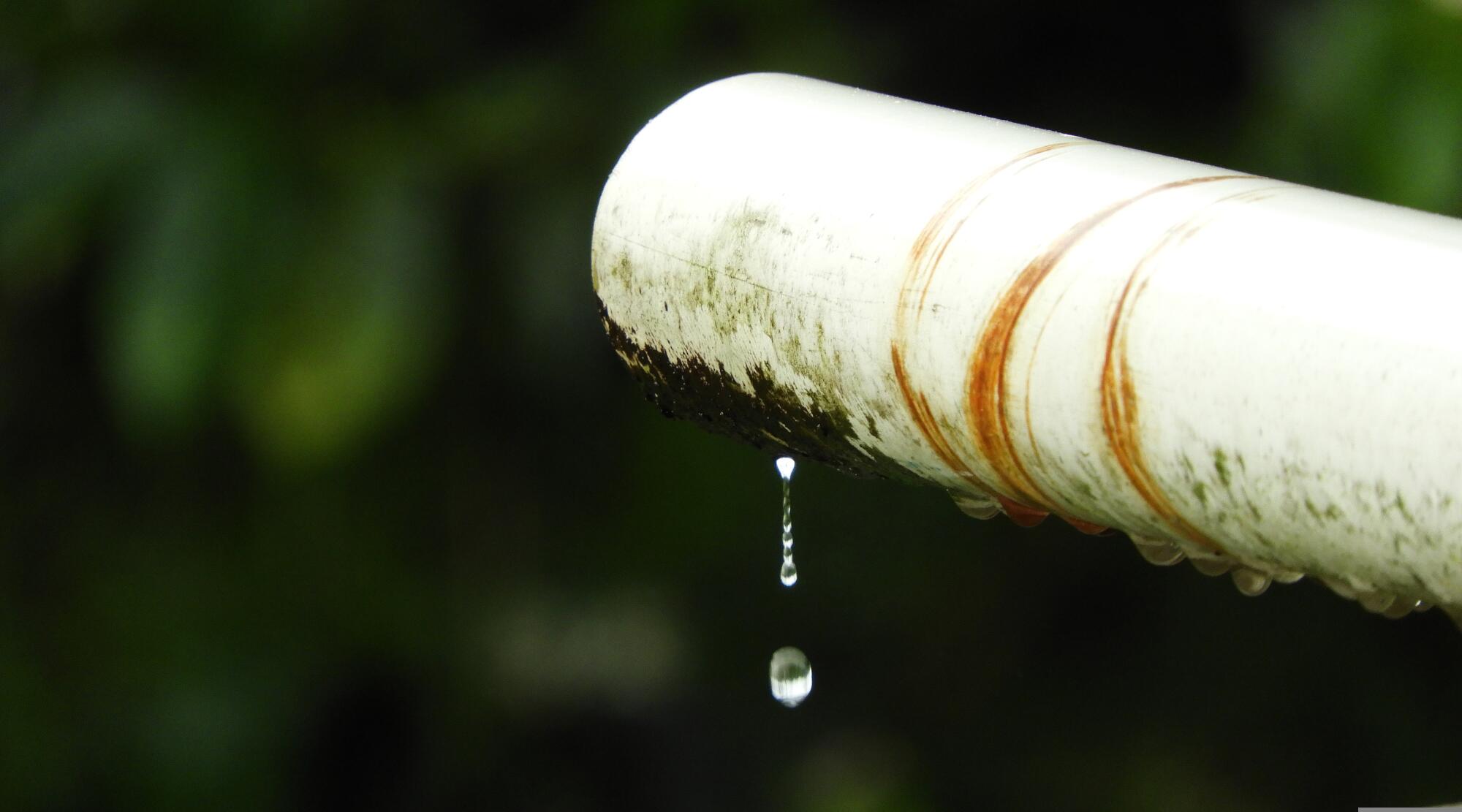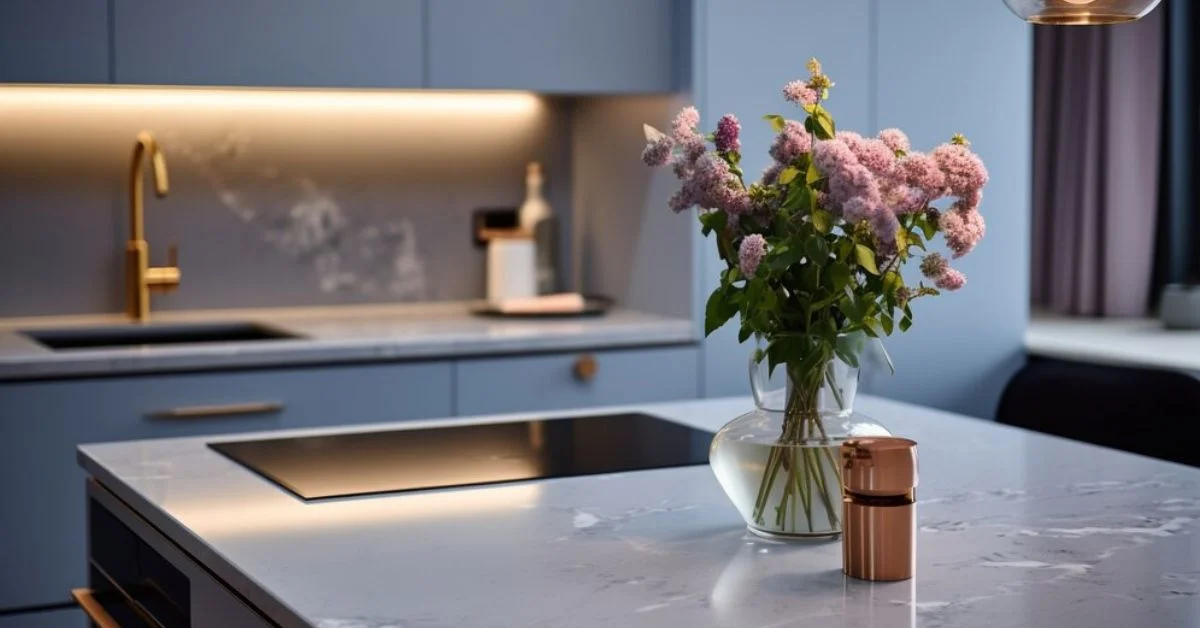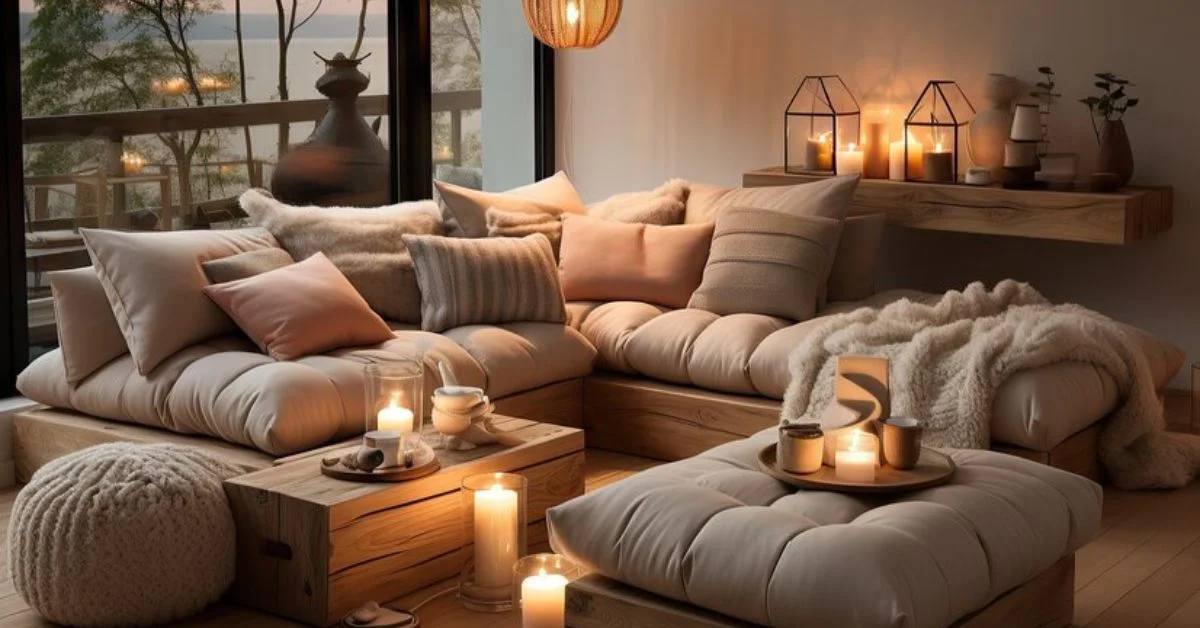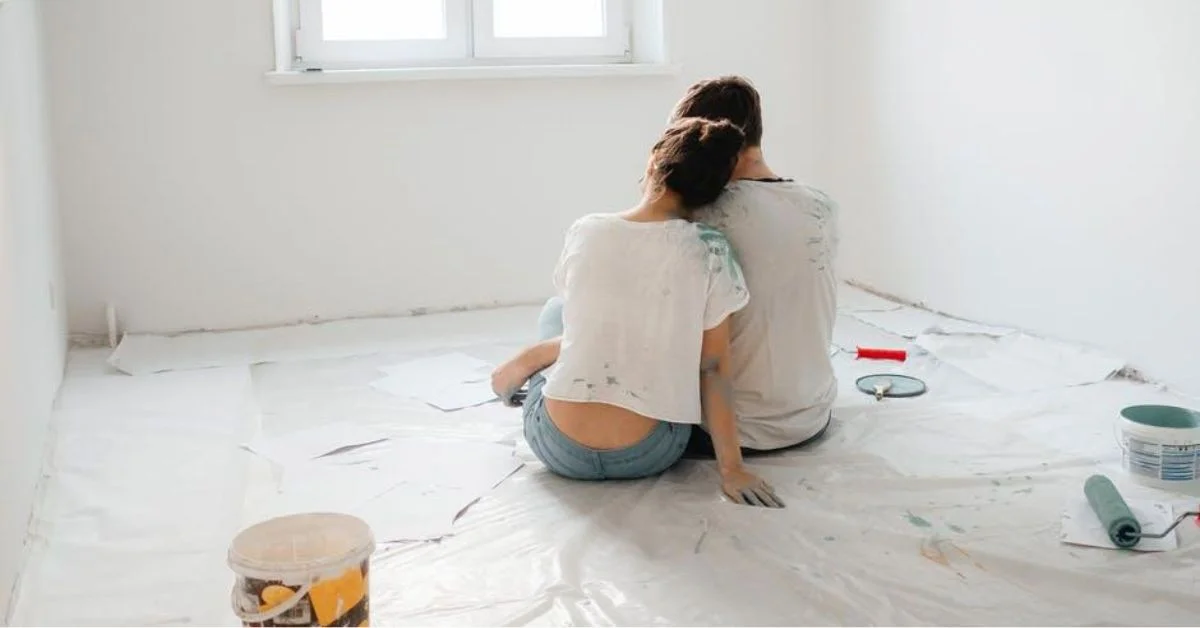HOME IMPROVEMENT
Preventing Water Leaking: Best Practices for Homeowners

Water leaks can be a hidden problem in any home, causing stress and worry. Understanding how to prevent water leaking is key to keeping your living space safe and dry. Taking proactive steps can make a big difference over time.
Staying aware of potential risks helps homeowners maintain peace of mind. Whether it’s a slow drip or a sudden issue, knowing how to handle these concerns is important. Preventing water leaking ensures your home remains a secure and comfortable place for years to come.
In this blog, we will discuss best practices in preventing water leaks.
Regularly Inspecting Pipes for Visible Wear and Tear
Regular inspections help you identify problems in your plumbing. Look for visible wear and tear on pipes. Catching issues early can save you money and prevent water leaking.
Check for rust, corrosion, or dampness around pipes. These signs can indicate potential leaks. Repairing or replacing damaged pipes helps you maintain a healthy plumbing system.
Don’t forget to check under sinks and behind appliances. Areas hidden from view often develop leaks. Keeping an eye on these spots is a smart move for every homeowner.
Installing Leak Detection Sensors in High-Risk Areas
Leak detection sensors are a great way to protect your home. They alert you to leaks before they cause major damage. Installing sensors in high-risk areas is wise for quick responses to fix water leaks.
Common high-risk spots include basements, bathrooms, and kitchens. These areas tend to have more plumbing elements. By placing sensors here, you can better monitor for potential water leaking issues.
When a leak is detected, the sensor alerts you immediately. This allows you to take action before damage occurs. Investing in these sensors can save you from costly repairs.
Replacing Old or Corroded Pipes to Prevent Future Leaks
Old or corroded pipes are a major risk for water leaks. They weaken over time and can break easily. Knowing when to replace these pipes is key to effective water damage prevention.
Common signs of needing a water line replacement include leaks or water stains. If you see these signs, consider having pipes inspected. Replacing old pipes keeps your plumbing running efficiently.
It’s best to use materials resistant to corrosion. Copper and PEX are popular choices for reliable plumbing. Making smart choices now prevents future plumbing issues and repairs.
Maintaining Proper Water Pressure to Avoid Pipe Bursts
Water pressure plays a big role in how well your plumbing works. If the pressure is too high, it can cause serious problems like burst pipes. Watching and adjusting water pressure helps keep your home safe and your plumbing in good shape.
The best water pressure for most homes is between 40-60 psi. You can check this easily with a pressure gauge. If the pressure is too high, adding a pressure regulator can help fix the problem.
Keeping water pressure at the right level also helps save water. It lowers the chances of leaks and costly damage. Taking care of this small detail can make your plumbing last longer and work better.
Sealing Around Plumbing Fixtures to Prevent Water Entry
Sealing around plumbing fixtures is a simple but important step to prevent leaks. Look closely at spots where pipes connect to sinks, toilets, or other fixtures. Use caulk or sealant to close any gaps and stop water from leaking out.
Check the seals regularly to ensure they are still in good condition. Over time, seals can crack, wear out, or let water escape. Replacing old or damaged seals is an easy way to avoid costly water damage.
Good seals do more than stop leaks; they also improve energy efficiency. They help keep water at the right temperature and reduce unwanted drafts. By keeping your seals in top shape, you protect your plumbing and save on repair costs.
Avoiding Harsh Chemicals to Preserve Pipe Integrity
Using harsh chemicals for cleaning and maintenance can harm your pipes. Many drain cleaners contain strong ingredients that corrode plumbing. Opt for safer alternatives to maintain pipe integrity.
Natural solutions like baking soda and vinegar can clear clogs without damage. These options are also safe for the environment. Keeping pipes clean and safe reduces the risk of leaks.
Read labels carefully before using any products. Ensure they are safe for your plumbing system. Preventive care leads to fewer problems and a longer-lasting plumbing system.
Using Pipe Insulation to Prevent Freezing in Cold Weather
Pipe insulation is very important for homes in cold areas. When pipes freeze, they can burst and cause major problems. Adding insulation is a simple way to protect your plumbing during the chilly winter months.
Foam sleeves are a great choice for insulating pipes. These sleeves fit snugly around pipes, keeping them stable and warm. Make sure to cover all exposed pipes in unheated areas, like basements or attics, to lower the risk of water leaking.
Keeping your home warm is another key step to avoid frozen pipes. Maintain indoor temperatures, even in rooms you don’t use often. By combining insulation and heat, you can keep your plumbing safe and avoid costly repairs.
Keeping Drains Clear to Avoid Blockages and Backup
Clogged drains can lead to serious plumbing issues. Regular maintenance is crucial for keeping drains clear. This prevents blockages and potential water leaks.
Use screens in sinks and tubs to catch hair and debris. Clean these screens regularly to maintain flow. Encourage family members to dispose of waste properly to avoid clogs.
Consider regular drain cleaning to remove buildup. This can be as simple as flushing with hot water. Keeping your drains clear saves money and hassle in the long run.
Installing Water Hammer Arrestors to Prevent Pipe Damage
Water hammer is a common issue in plumbing systems. It occurs when the water flow is suddenly stopped. This can damage pipes and lead to leaks over time.
Installing water hammer arrestors can help. These devices absorb shock waves in the plumbing. They prevent loud banging noises and protect your pipes.
Adding arrestors is a simple task for any homeowner. If you experience a water hammer, consider this solution. Doing so can prolong the life of your plumbing system.
Regularly Checking Faucets and Showerheads for Drips
Dripping faucets and showerheads can waste water and money. Regular checks can help identify these small leaks. Fixing drips is a simple yet effective way to improve plumbing health.
Look for signs of water pooling or excessive moisture. Even small leaks can add up over time. Addressing these issues early prevents larger problems down the line.
Replacing worn washers or cartridge systems can fix most drips. Make it a habit to check fixtures regularly. This small step protects your home from potential water damage.
Hiring Professional Plumbers for Routine Inspections
Professional plumbers can identify problems you may miss. Regular inspections help prevent costly repairs. Hiring experts ensures your plumbing stays in good shape.
Consider scheduling annual check-ups for your system. They can examine pipes and fixtures for leaks or damage. Professionals have the experience to keep your plumbing functional, they also provide emergency leakage solutions.
Don’t wait for problems to arise. Proactive maintenance is often cheaper in the long run. Invest in a plumber’s expertise to safeguard your home.
Sealing Gaps Around Plumbing Ventilation Pipes
Gaps around plumbing ventilation pipes can lead to air leaks. These gaps allow moisture and humidity to enter your home. Sealing them is vital for preventing water from leaking.
Use expanding foam or caulk to seal the gaps. This stops moisture from interfering with your plumbing system. Regular inspections are recommended to keep seals tight.
By sealing gaps, you also enhance energy efficiency. This helps maintain indoor temperatures and saves on energy bills. Paying attention to these details protects your home overall.
Testing for Leaks with Pressure Testing Tools
Pressure testing tools are essential for finding leaks in your plumbing. Using these tools allows you to detect issues early. Regular testing ensures your system remains leak-free.
Most professionals use pressure gauges to check for leaks quickly. They can identify weak points in your plumbing. After testing, necessary repairs can be easily made.
Even homeowners can benefit from learning the basics. Understanding pressure testing helps you stay vigilant. Detecting leaks sooner is key to effective water damage prevention.
Educating Family Members on Proper Plumbing Maintenance
Teaching your family about plumbing care is essential. Everyone should understand how to take care of the system. Knowledge leads to better practices and fewer issues.
Provide guidelines for using water safely and responsibly. Show family members how to identify leaks and clogs. Empowering others fosters a proactive approach to plumbing maintenance.
Consider creating a simple checklist for routine tasks. Regular reminders can keep everyone on track. Together, you can maintain a healthy plumbing system and prevent water leaking.
Stop Water Leaking Before It Becomes a Problem
Preventing water leaking is essential to protect your home and its plumbing system. Small leaks can grow into costly problems if left unchecked. Taking simple, proactive steps ensures your home remains secure and damage-free.
By staying vigilant and maintaining your plumbing, you can save time and money in the long run. Regular inspections and timely repairs are key to avoiding major issues. Protect your home today by prioritizing leak prevention and proper care.
Did this article help you? Browse our blog for more interesting topics.
HOME IMPROVEMENT
How To Know if Granite Countertop Installation Is Right for Your Home

New countertops can transform a space’s overall appearance and functionality, allowing homeowners to customize their homes. There are many countertop materials to choose from, including natural stones like granite. Granite is suitable for home use due to its durability, versatility, and comprehensive color options. Here are six factors to evaluate when determining if a granite countertop installation is right for your home:
1. Durability and Longevity
Different countertop materials have varying degrees of hardness and damage resistance. Granite is a durable material with a high hardness level, making scratches and chips unlikely to occur. Unlike softer materials that may show signs of wear and tear over time, granite maintains its appearance well, even with regular use.
The natural stone will remain flat as it is resistant to warping and bowing. Homeowners can install it in areas prone to heavy daily activities, such as kitchens and bathrooms. Granite’s durability also allows it to be used for outdoor applications like patio tables, poolside bars, and outdoor kitchens.
2. Maintenance Requirements
Understanding a countertop material’s maintenance requirements helps homeowners make decisions that align with their lifestyle and long-term satisfaction goals. Granite countertops have relatively low maintenance requirements. This stone is a porous material, meaning it can absorb liquids if not properly sealed. Sealing helps protect the surface from stains, enhancing its durability and appearance.
Depending on the type of sealer used, granite countertops may need to be resealed occasionally to keep them in top condition. Avoid abrasive cleaners or harsh chemicals that can damage the sealant or the granite surface. For routine cleaning, homeowners can use a mild soap and water solution to wipe down the countertops.
3. Functionality
When evaluating a granite countertop installation, homeowners should make sure the material meets their functional needs. Granite is naturally heat resistant, which means homeowners can briefly place hot pots and pans directly on the countertop without causing damage. This feature adds to its functionality and convenience in the kitchen. It also makes granite a suitable bathroom countertop surface for individuals who use hot hair tools. Granite’s versatility adds to its functionality, allowing homeowners to use it for various designs and applications, including backsplashes and kitchen islands.
4. Aesthetic Preferences
Updating a home’s kitchen or bathroom countertops allows homeowners to personalize and coordinate their space. Granite comes in a wide range of colors, from subtle hues like beige and gray to bold colors like blue and red. This variety allows homeowners to choose a granite slab that complements the room’s overall look. The natural stone can be paired with other kitchen and bathroom design materials, such as wood and stainless steel. Its natural patterns, veining, and specks also add depth and character to the countertop, creating a visually appealing focal point.
5. Resale Value
Granite countertops make a suitable investment for homeowners planning to sell their homes in the future. When properly sealed and cared for, granite countertops can last for many years. Buyers may value this durability, as it indicates a long-lasting and low-maintenance feature in the home, reducing the need for immediate replacements or repairs. Granite also complements a variety of home aesthetics. Whether a buyer prefers a traditional, modern, or transitional look, they can easily decorate their new home to fit their style.
6. Installation Requirements
The installation requirements of your chosen countertop material affect your project’s timeline, budget, and overall convenience. Granite countertops may require professional assistance due to their weight and specific installation techniques. During the installation process, experienced installers work with homeowners to measure and prepare the space.
They can provide an estimate of the cost of labor, specialized tools, and materials needed for the project. This estimate allows homeowners to budget and plan accordingly for a high-quality granite countertop installation. The installer also makes sure the countertop’s underlying cabinets and support structures are sturdy enough to bear the granite stone’s weight. Working with a trained contractor helps promote a safe and successful countertop installation.
Schedule a Granite Countertop Installation Today
Evaluating factors such as a countertop’s durability, maintenance requirements, and aesthetic options allows homeowners to choose a material that best suits their needs. Granite countertop installation provides a strong and scratch-resistant surface solution for frequently used areas of the home. Contact an experienced natural stone supplier and installer today to browse their products.
HOME IMPROVEMENT
Exploring Comfort Meets Contemporary Design: The Hallerbos Sofa Set

In the realm of interior design, the fusion of comfort and contemporary aesthetics has become increasingly sought after. The Hallerbos Sofa Set emerges as a testament to this harmony, embodying the perfect balance between indulgent comfort and sleek, modern design. In this article, we delve into the allure of the Hallerbos Sofa Set, examining its ergonomic features, minimalist design elements, and the seamless integration of functionality and style.
Comfort Redefined
The Hallerbos Sofa Set transcends conventional notions of comfort, offering an unparalleled lounging experience. Crafted with meticulous attention to detail, its ergonomic design contours to the body, providing optimal support and relaxation. Sink into the plush cushions, enveloped by sumptuously soft upholstery, and feel the stresses of the day melt away. Whether you’re unwinding after a long day or hosting guests for a cozy evening, the Hallerbos Sofa Set ensures comfort is never compromised.
Contemporary Design Elements
At the heart of the Hallerbos Sofa Set lies its contemporary design ethos. Characterized by clean lines, minimalist aesthetics, and a focus on functionality, this sofa set seamlessly integrates into modern living spaces. Its sleek silhouette adds a touch of sophistication, while the absence of unnecessary ornamentation exudes an air of understated elegance. Whether adorning a chic urban loft or a minimalist apartment, the Hallerbos Sofa Sets serves as a captivating centerpiece, effortlessly elevating the aesthetic appeal of any room. Discover the epitome of modern living with this product.
Functionality and Practicality
Beyond its aesthetic allure, the Hallerbos Sofa Set is lauded for its practicality and functionality. Designed with the modern homeowner in mind, it boasts multi-functional components and space-saving features. Convertible mechanisms effortlessly transform the sofa into a sleeper, accommodating overnight guests with ease. Meanwhile, built-in storage compartments provide a discreet solution for stowing away blankets, cushions, and other essentials, maintaining a clutter-free living space. With durability and longevity at its core, the Hallerbos Sofa Sets offers not only style but also practicality for everyday living.
Customer Satisfaction and Reviews
The true measure of any furniture piece lies in the satisfaction of its users, and the Hallerbos Sofa Set garners rave reviews from discerning homeowners. Testimonials from satisfied customers attest to its unrivaled comfort, impeccable craftsmanship, and timeless design. From solo dwellers seeking solace in its embrace to families bonding over movie nights, the Hallerbos Sofa Sets has become an indispensable companion in countless homes. Real-life examples showcase how this sofa set has transformed living spaces, instilling a sense of warmth and sophistication.
Sustainability and Ethical Manufacturing
In an era where environmental consciousness is paramount, the Hallerbos Sofa Set stands out for its commitment to sustainability and ethical manufacturing practices. From responsibly sourced materials to eco-friendly production methods, every aspect of its creation is geared towards minimizing environmental impact. Moreover, the manufacturer’s dedication to social responsibility initiatives ensures fair labor practices and supports local communities. By choosing the Hallerbos Sofa Sets, consumers not only elevate their living spaces but also contribute to a greener, more equitable world.
Comparisons with Other Sofa Sets
In a crowded marketplace inundated with furniture options, the Hallerbos Sofa Set shines as a beacon of excellence. Contrasting traditional sofa sets with contemporary counterparts highlights its innovative design and superior comfort. When pitted against other contemporary offerings, its versatility, durability, and aesthetic appeal emerge as distinguishing factors. Whether compared on price, quality, or design, the Hallerbos Sofa Sets invariably emerges as the preferred choice for those seeking the perfect amalgamation of comfort and style.
Conclusion
As we conclude our exploration of the Hallerbos Sofa Set, it becomes evident that this furniture piece transcends mere functionality to embody a lifestyle statement. With its unrivaled comfort, contemporary design elements, and commitment to sustainability, it epitomizes the epitome of modern living. Whether nestled in a chic urban loft or adorning a cozy suburban home, the Hallerbos Sofa Sets exudes timeless elegance and effortless sophistication. For those who prioritize comfort without compromising on style, it serves as an irresistible invitation to indulge in the art of living well.
HOME IMPROVEMENT
7 Creative Ways to Boost Your Home’s Curb Appeal With Exterior Renovations

Are you looking to transform the look of your home without breaking the bank?
Exterior renovations can be the perfect solution to boost your home’s curb appeal, making it stand out in the neighborhood. From simple tweaks to more significant changes, this article explores seven creative ways to enhance your home’s exterior.
Whether you’re looking to sell your home or simply want to make it more inviting, these tips will help you achieve a fresh, new look that will catch everyone’s eye.
1. Update the Front Door
Updating front of houses, can dramatically change your home’s appearance. You can paint it a new color or replace it altogether with a modern design. Adding new hardware like a stylish doorknob or a smart lock can also make a big difference.
2. Add Exterior Lighting
Adding exterior lighting can make your home safer and more welcoming at night. Install lights along pathways, near the front door, or around your garden to highlight your home’s best features. This upgrade not only improves visibility but also adds a warm ambiance to your outdoor spaces.
3. Upgrade the Garage Door
Upgrading your garage door can significantly improve your home’s overall look. You can choose a new door that matches your home’s style or one that stands out as a feature. A new garage door not only looks good but can also increase your home’s security.
4. Enhance Landscaping
Improving your landscaping is an effective way to beautify your small house exterior. You can plant flowers, shrubs, or even a tree to add color and life to your outdoor space.
Regular maintenance, such as mowing the lawn and trimming plants, keeps your yard looking neat and tidy. If you have a pathway leading to the entryway, consider the best paver installation to complement the overall design and provide a durable and attractive walking surface.
5. Install Window Shutters
Installing window shutters can enhance your home’s aesthetic and offer added privacy. They are available in various styles and colors to match any home design. Shutters also provide an extra layer of insulation, which can help regulate indoor temperatures and reduce energy bills.
6. Upgrade Exterior Finishes
Upgrading the finishes on your home’s exterior can give it a refreshed look. This can involve repainting the siding, trimming, or even replacing old materials with new, more durable options. It can help protect your home from the elements and improve its overall value.
7. Add Architectural Details
Adding architectural details to your home can give it a unique character. This could include features like decorative trim, molding around windows and doors, or a custom mailbox. Such details can set your home apart from others and reflect your personal style.
Elevate Your Home’s Charm With Exterior Renovations That Turn Heads
Enhancing your home doesn’t have to be a daunting task. With these exterior renovations, you can make a big impact with just a few changes. Remember, it’s all about creating a space that you love and that welcomes you every time you come home.
Whether it’s a new front door, brighter lights, or beautiful landscaping, each step you take adds value and beauty. Start imagining the possibilities and make your home the envy of the neighborhood with these simple upgrades.
Were you satisfied with the information in this article? If yes, our blog offers even more valuable resources.

 HOME IMPROVEMENT12 months ago
HOME IMPROVEMENT12 months agoThe Do’s and Don’ts of Renting Rubbish Bins for Your Next Renovation

 BUSINESS1 year ago
BUSINESS1 year agoExploring the Benefits of Commercial Printing

 BUSINESS12 months ago
BUSINESS12 months agoBrand Visibility with Imprint Now and Custom Poly Mailers

 HEALTH8 months ago
HEALTH8 months agoThe Surprising Benefits of Weight Loss Peptides You Need to Know

 TECHNOLOGY10 months ago
TECHNOLOGY10 months agoDizipal 608: The Tech Revolution Redefined

 HEALTH7 months ago
HEALTH7 months agoYour Guide to Shedding Pounds in the Digital Age

 HOME IMPROVEMENT7 months ago
HOME IMPROVEMENT7 months agoGet Your Grout to Gleam With These Easy-To-Follow Tips

 HEALTH11 months ago
HEALTH11 months agoHappy Hippo Kratom Reviews: Read Before You Buy!









